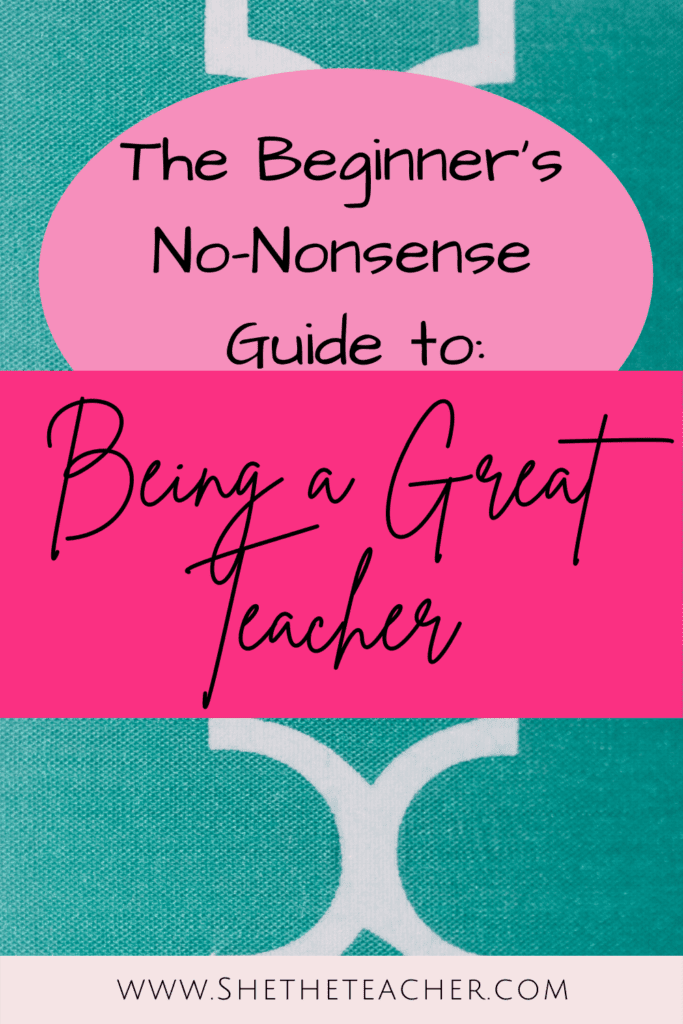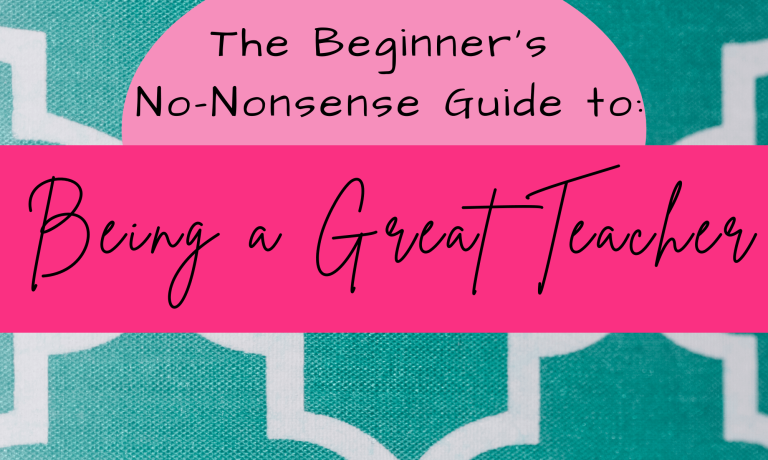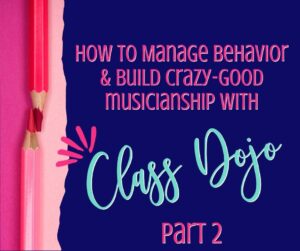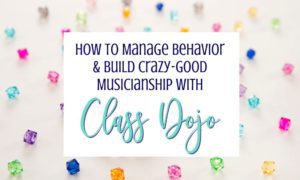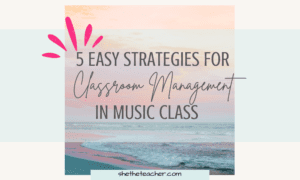In my lifetime so far, I’ve been taught by well over 100 teachers from early childhood through graduate school. Being someone who naturally gravitates toward artistic subjects like fine arts or writing, I am not someone who is usually swayed to enjoying more technical classes. . . How does that explain why one of my favorite courses I ever took in high school was AP American History, a class that I had no interest in whatsoever?
Likewise, in college, when I was enrolled in the College of Music at CU Boulder, one of my very favorite places on the planet, studying music (which I love more than anything in the entire world), why did I find myself miserable in so many of my classes?
How is it possible that one of my favorite courses was in a subject I had no personal interest in and many of my least favorite classes were in the subject I loved the most?
Because what determined for me, and what will determine for most of our students how much value they get out of our classes, isn’t found in the content we teach. It’s not the quality of our assignments or how available to our students we are in office hours or email. It doesn’t even matter if they like our content. What our students get out of our classes depends on one thing and one thing only.
It depends on US and our ability to be a great teacher.
What makes a teacher a great teacher?
There isn’t one single thing that makes a great teacher, but rather a combination of many different personality traits and personal skill in their content area that determine how successful they will be in reaching their students. When I look back on my school career, here are some of the things that have stood out to me in my favorite teachers.
- They’re intensely creative in their lessons.
- They care deeply about their content area and aren’t afraid to completely “geek out” about it.
- They have fun with their students and inject humor into their lessons.
- They’re open about who they are, open about their opinions (though publically neutral in political and religious views), and aren’t afraid to show their emotions.
- They work to develop a strongly bonded classroom community.
- They have high expectations and never allow mediocrity in work or behavior from their students.
- They know each of their students on a personal level and enjoy learning about their stories.
- They have enough patience to see even the lowest motivated student through to success and are abundantly empathetic to the struggles of their students.
- They help education to “come alive” for their students by showing them the true importance of what they’re learning by bringing the classroom to the world, or the world to their classroom.

Common Questions About Becoming a Great Teacher
- How can I increase my patience with students?
- One of the most important and overlooked skills I see from new or struggling teachers is patience and it’s usually due to a deficit in their classroom management plan. Students of all ages love to push buttons and boundaries when they sense they or someone else can “get away” with something inappropriate. The biggest thing you can do to improve your patience with students is to FOLLOW THROUGH with your discipline plan each and every time a student misbehaves. There are lots of resources for developing a positive and healthy classroom management plan (many of which I’ll discuss at SheTheTeacher), but the #1 tip for maintaining control of your classroom and your emotions comes down to calmly following a predetermined plan in the heat of a moment (when all you want to do is yell).
- How do I build a positive classroom community & culture?
- A positive classroom culture depends on the health of three relationship arrows: teacher to student, student to student, and student to teacher.
- Your teacher to student arrow can be improved by making sure you spend a few minutes each day getting to know a few different students. Ask them about their interests, how things are going at home, what their plans are for the weekend. Students who feel like their teacher knows them will feel more connected to school and their class.
- Improve your student to student relationships by carefully teaching them how group work looks, sounds, and feels. Spend lots of time, especially at the beginning of the year talking about verbal and non-verbal cues, tone of voice, inclusion, and accountability.
- Your student to teacher relationship is the one you will always have the least control over. Although you may not be able to control how students treat you or talk to you all the time, you do always have control over your response to them. Following through in your classroom management plan will keep this arrow healthy.
- A positive classroom culture depends on the health of three relationship arrows: teacher to student, student to student, and student to teacher.
- I’m not a naturally creative lesson planner. How do I learn more creative lessons?
- Lesson creativity isn’t something that comes naturally to every teacher and that’s ok! Here are some of my favorite creative “brain-juice” starters:
- What is something my students can touch? How can I add a tactile element or manipulatives to this lesson?
- How can I make this into a game? How can I encourage friendly competition amongst my students?
- How can I change the scenery of this lesson? Can I set the stage for them somehow either physically or virtually?
- Who is someone other than me who can teach an element of this lesson? Can I record them if they can’t be with us live?
- How can I give them student choice in this project?
- Can I change my delivery? Can I record myself in a podcast or video format?
- Can I do this lesson in a rotating format with multiple learning centers along the way?
- Lesson creativity isn’t something that comes naturally to every teacher and that’s ok! Here are some of my favorite creative “brain-juice” starters:
- What are some ways I can set high expectations for my students?
- My favorite methods of setting high expectations for students are two-fold: focus on growth and effort while also giving consistent and specific, measurable feedback. Student achievement should always be celebrated, but honest effort and growth should be celebrated MORE. As a rule, teach students all about growth mindset at the beginning of each year and multiple times throughout the year. Students who see a mountain in front of them with no checkpoints along the way will give up before they take their first step. But if you, the teacher, are clear about what you want students to so do, give them specific instructions for how to do it, and then celebrate when they improve, they will be considerably more apt to push themselves for you. If they’re penalized for not achieving something the first go-around, with no hope of growing through it, you will lose them 100% of the time, every time.
- I’m not a naturally funny person. How can I make my students laugh more? Why is humor so important?
- Humor is one of those things that make us innately human. No other species on the planet learns to laugh and communicate through humor like we do. Laughter is one of the natural relaxants we can use to infuse our classroom with positive energy and joy for our students. Here are some of my favorite funny things to do with students:
- Start a class, a test, or a unit off with a funny quote, joke, or video.
- Add funny posters to my classroom walls. Put a comic in my classroom newsletter.
- Randomly put funny or ridiculous questions or answers into quizzes or tests.
- Keep a running log of funny or gross stories in your own life that you can tell your students about later. Nothing makes kids laugh more than telling them about the time a bird pooped in your ear or when your dog farted himself awake on the couch while watching Netflix.
- Make fun of yourself. Making fun of students is a hard no-go, but my students still like to bring up the time I tried wheeling across my room in my wheely desk chair and fell over and out of it. We all had a good laugh and it became an inside joke for the rest of the year.
- Celebrate ridiculous holidays. Is it Pi Day? Star Wars day? Vowel day? Miniature Poodle day? Celebrate it! Google is FULL of the crazy holidays for every single day of the year. Make a point to celebrate at least a few funny holidays each year.
- Humor is one of those things that make us innately human. No other species on the planet learns to laugh and communicate through humor like we do. Laughter is one of the natural relaxants we can use to infuse our classroom with positive energy and joy for our students. Here are some of my favorite funny things to do with students:
- How do I make my teaching “come alive” for my students?
- The biggest key to making content accessible and interesting to students is to increase their exposure to the subject in meaningful ways. Some of the best lessons my students learned in my class weren’t ever taught by me. I once had our SRO (school police officer) come lead a class once on taking healthy risks for my shy choir class. I invited a DJ friend into my class to talk about beat and composition. I had the local high school choir come talk to my middle school kids about audition processes. Get your students out of the room or at least out of their desks/chairs. Get them walking around the room, the school building, or out into the community. Give them an authentic audience (school board, retirement home, parent night, a younger class) to present to. The MOST important thing you can do, is to work on getting students to understand the real-world value of what you’re learning in class. A student who sees value in their learning will internalize it that much more.
Final Thoughts
The best teachers are the ones who are wholly and undeniably themselves in a version that is accessible to students. The more you understand your students, pique their interest, keep your lessons fresh, hold them accountable, and teach them effort and growth, the better they will be (and the better you will be for having taught them). Your greatness depends on you holding yourself to the standard of always being prepared but flexible, kind but firm, and strict yet funny. It’s a balancing act for sure, but there is ALWAYS something we can learn and the more we work on these aspects of our teaching personality, the more our students will learn from us.
Did you enjoy this article? Share it with your teaching bestie!
